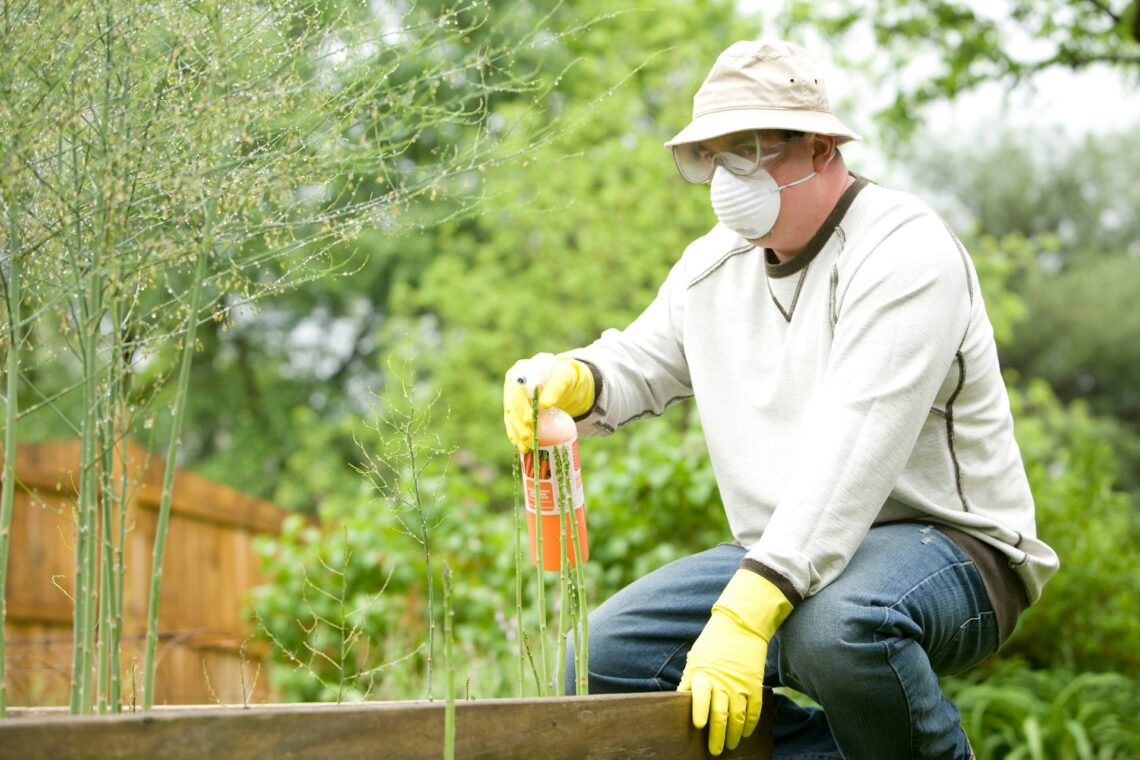This guide empowers you to create a healthy garden free of pests. Learn how to choose the right plants, naturally deter unwanted visitors, and identify signs of trouble. With these helpful strategies, you can keep your family and your flourishing garden safe.
Introduction to Garden Pests
Although gardening may be a fulfilling pastime, insect invasions can rapidly make it an unpleasant experience. These unwelcome visitors not only damage plants but can also pose risks to your family’s health. Whether you’re dealing with insects, rodents, or even birds, understanding and managing these pests is crucial for maintaining a thriving garden and safe home environment. For instance, effective mosquito control in Weymouth, MA, can be essential to protecting your garden and your family from pest-related issues.
Many garden pests can cause extensive damage to flowers, vegetables, and ornamental plants, leading to poor yields and unsightly gardens. Additionally, pests like mosquitoes and rodents can carry diseases affecting your family’s health. You may enjoy a lovely landscape and a secure house by implementing a thorough pest management plan.
Identifying Common Garden Pests
Before you can effectively manage pests, it’s essential to identify the specific types causing problems in your garden. Here are some of the most common garden pests:
- Aphids: Small, sap-sucking insects that can cause significant damage to plants. These tiny pests can multiply rapidly, often forming large colonies on the undersides of leaves, leading to curled, yellowed leaves and stunted growth.
- Slugs and Snails: Known for leaving slimy trails and large holes in leaves. They are particularly problematic in damp, shady areas and can quickly decimate young seedlings and tender plants.
- Rodents: Mice and rats often seek gardens for accessible food sources, such as fruits, vegetables, and seeds. In addition to damaging plants, rodents can pose health risks by spreading diseases and contaminating food sources.
- Ants: While not always harmful, some ants protect other pests like aphids and can contribute to spreading plant diseases. Additionally, large ant colonies can disturb soil structure and damage plant roots.
Natural Methods to Control Garden Pests
While just as effective, natural pest control methods are gentler on your family, pets, and the environment. These eco-friendly solutions promote a balanced garden ecosystem, keeping unwanted pests away. Need help with mosquitos? Search for mosquito control near me for targeted solutions.
Here are a few well-liked natural techniques:
Aphid numbers and other undesirable pests can be managed by introducing beneficial insects like ladybugs and lacewings. These predators feed on pest insects, reducing their numbers without chemical interventions. For example, beneficial insects are a natural way to maintain a healthy garden.
Companion Planting
Companion planting is placing specific plants adjacent to one another to repel pests naturally. For instance, planting basil near tomatoes can help repel aphids, flies, and mosquitoes, protecting your plants without harsh chemicals. Marigolds, often dubbed “nature’s insecticide,” can deter various pests and attract beneficial insects, making them an excellent addition to any garden.
Homemade Sprays
DIY sprays using ingredients like garlic, soap, or neem oil can deter various pests. These natural solutions are often accessible to prepare and use, making them a popular choice for organic gardeners. Garlic spray can repel insects like aphids and caterpillars, while neem oil is effective against many pests, including spider mites and whiteflies.
Preventive Measures to Keep Pests at Bay
Taking preventive measures is crucial for keeping pests away from your garden. By incorporating these proactive steps into your gardening routine, you can reduce the likelihood of infestations and promote a healthier, more resilient garden. Here are some essential preventive measures:
- Regular Monitoring: Watch for pest activity on your plants and act quickly if necessary. Early detection allows you to address pest issues before they become severe, reducing the need for more drastic measures.
- Proper Sanitation: Remove dead leaves and garden debris that can harbor pests. Keeping your garden clean and free of decaying plant material can prevent pests from finding hiding spots and breeding grounds.
- Water Management: Over-watering can attract pests like slugs and snails. Properly managing soil moisture by watering plants at the base and using drip irrigation can minimize pest problems. Consider using mulch to suppress weeds and regulate soil moisture, which can also deter pests.
Using Safe and Effective Pesticides
When natural methods aren’t enough, pesticides may be necessary. Opt for EPA-approved products and always follow the manufacturer’s instructions. Avoid using broad-spectrum pesticides that can harm beneficial insects. Instead, choose targeted solutions that address specific pests without damaging the ecosystem. For instance, using insecticidal soap to treat aphid infestations or applying diatomaceous earth to deter slugs can be effective while minimizing harm to other garden inhabitants.
Protecting Your Family from Household Pests
Garden pests often find their way into homes, posing health risks. To prevent infestations, implement measures such as sealing entry points, reducing moisture levels, and storing food properly. Educate your family about recognizing pests and immediately mitigating potential health hazards. Maintaining a clean and organized house will help lessen the possibility of pests seeking refuge.
Balancing Pest Control with Environmental Responsibility
While controlling pests is essential, it’s equally important to do so in an environmentally responsible way. Promoting biodiversity and ecologically friendly methods may establish a healthy ecosystem with naturally occurring pest control. Avoid over-reliance on chemical treatments and foster a garden that thrives with minimal intervention. Planting diverse species can attract beneficial insects and create a more resilient garden capable of withstanding pest pressures without excessive chemical use.
Conclusion: Paving the Way for a Healthy Garden and Home
Protecting your garden and family from pests involves a combination of vigilance, natural methods, and targeted treatments. By maintaining healthy garden practices and employing preventive measures, you can enjoy a beautiful, thriving garden while ensuring your home remains a haven from potential pest-related risks. Remember, a proactive approach is critical to effective pest management.
Using these methods, you may make your gardening efforts more successful and give your family a safer and more sustainable environment. Take the time to understand your garden’s specific needs and adjust your pest control practices accordingly, ensuring your plants and loved ones are well protected.






